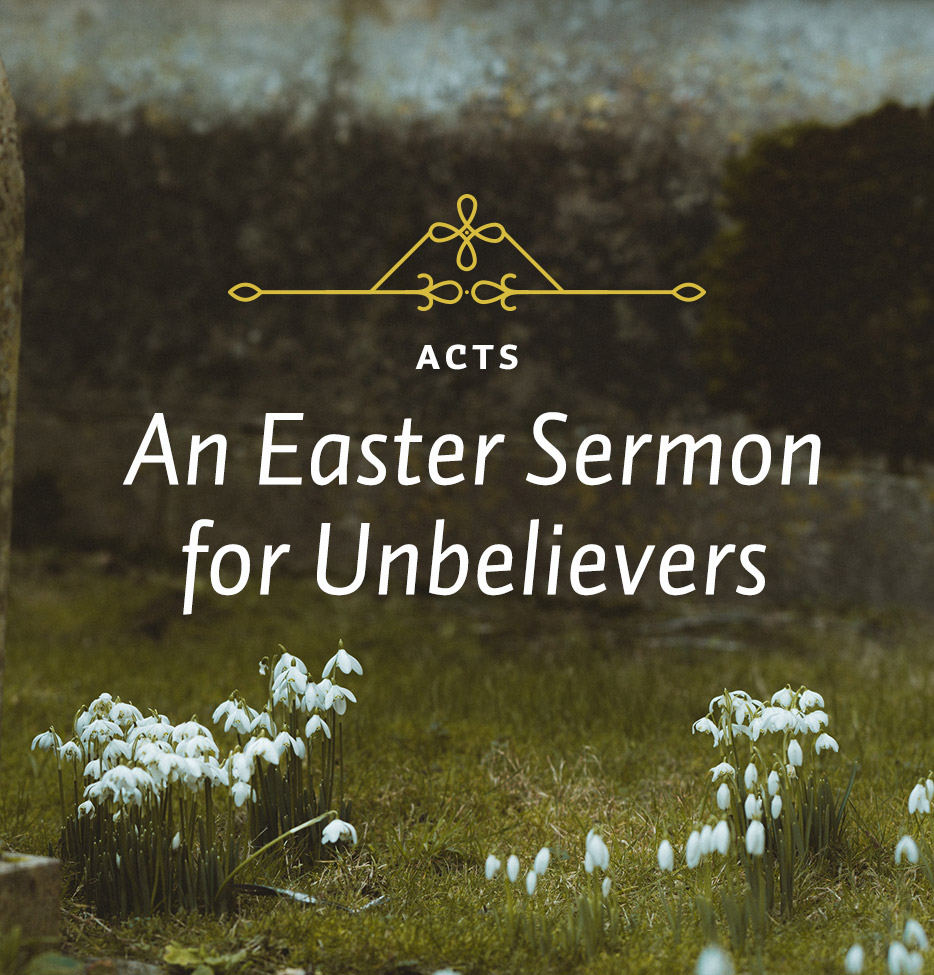Paul’s address begins in verse 22. When you write a formal address or sermon, you generally begin with an introduction, have three or four main points, and then a good conclusion. This is exactly what Paul does here. He has a short introduction, followed by four clear points: 1) that God is the Creator of all things; 2) that God is the sustainer of all things; 3) that God is the ordainer of all things; and 4) that we should seek Him. After this there is a conclusion which says that we should repent since we have not sought God as we should, to which he appends three inducements. It is here, at the very end, that his warning about Christ’s resurrection comes in.
The introduction. Paul began by reminding the Greeks of something he had noticed as he walked through the city. He said, “Men of Athens! I see that in every way you are very religious. For as I walked around and observed your objects of worship, I even found an altar with this inscription: TO AN UNKNOWN GOD.1 Now what you worship as something unknown I am going to proclaim to you” (vv. 22-23).
Paul does not explain at this point why the true God was unknown to the Athenians, though we know what he thought about this from his teaching in Romans 1. The reason why men and women do not know God is that they do not want to know Him. God has made Himself known. The reason we do not know God is that we reject the revelation. Paul does not say that here, but he notes the ignorance and proposes to correct it by his proclamation.
1. God is the Creator of all things. Paul’s first point, after his introduction, is that God is the Creator of all things. This is what verse 24 is about: “The God who made the world and everything in it is the Lord of heaven and earth and does not live in temples built by hands.” The doctrine of creation, in addition to teaching man’s responsibility to seek and serve Him (which Paul develops later), means that God has not left Himself without a witness. It is true that not everyone has had the Scriptures. The Old Testament was only given to the Jews. But all people at all times have had a witness to God in creation, that is, in the heavens and on earth. Thus no one can claim utter ignorance of the true God.
2. God is the sustainer of all things. Paul’s second point is that God is the sustainer of all things. He teaches this in verse 25: “He [God] is not served by human hands, as if he needed anything, because he himself gives all men life and breath and everything else.” This means that God sustains or upholds His creation. It is not that we provide for Him; He provides for us. In the first chapter of Colossians Paul says that “in him [that is, Christ] all things hold together” (v. 17), which seems to suggest that, if God were not holding all things together, everything would fly apart. The very fact that we and the world are here, that we are alive and that we can think about both it and ourselves, are all due to the sustaining activity of God. Paul is teaching that no one, not even utter pagans, should be ignorant of these things. 1Because of the nature of the Greek language, the inscription, which lacks the definite article, can be rendered either “to an unknown god” (NIV) or “to the unknown god” (KJV and other texts).






